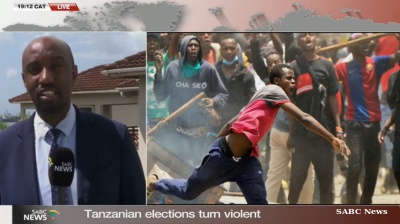Serbian lawmakers have begun debating a draft law that would establish a "foreign agents" registry, triggering domestic and international criticism over its potential impact on civil society and the country’s aspirations for European Union membership.
The proposed law, submitted to parliament on November 29 by the pro-Russian Movement of Socialists founded by Deputy Prime Minister Aleksandar Vulin, mandates that organisations receiving over 50% of funding from foreign sources register as “foreign agents”.
Proponents argue that the measure is a transparency tool modelled after the U.S. Foreign Agents Registration Act (FARA), but critics contend it mirrors restrictive Russian legislation aimed at stifling dissent.
“This draft law poses a serious and direct threat to civil society organisations, jeopardising their role in safeguarding democratic values, human rights, and European integration,” the European Economic and Social Committee (EESC) said in a December 3 statement. The EESC warned the legislation is incompatible with EU standards and could derail Serbia’s progress toward membership.
Vulin, a staunch ally of Moscow, has defended the proposal, framing it as a move to protect Serbia’s national interests. However, his close ties to Russia, which placed him under US sanctions in 2023, have fuelled scepticism about the bill’s true intent.
Critics view the draft law as a rudimentary version of Russia’s foreign agents legislation, which has been used to target NGOs, media outlets and individuals critical of the government. Similar proposals have emerged in other Balkan nations with significant pro-Russian factions, including Bosnia’s Republika Srpska and Montenegro, fuelling concerns about a regional trend towards authoritarianism. In Georgia, legislation modelled on the Russian law sparked mass protests in spring 2024.
While Serbia’s proposal seems more liberal, requiring a minimum of 50% foreign funding for registration, its vague definitions of “foreign agent” and “political activity”, make it dangerously ambiguous and open for abuse.
International observers have warned of broader implications for Serbia’s EU path. “We call on Serbian lawmakers to consider the implications of the proposed draft law and avoid actions that could harm civil society and hinder Serbia's progress on their European path,” the EESC advised.
Former director of Serbia’s Military Intelligence Agency, General Momir Stojanovic, expressed doubts about the draft law’s viability. “I personally think the law won't be passed, as it would undermine the government's legitimacy and reinforce suspicions of its autocratic nature,” he told N1.
Serbia, alongside Montenegro, is regarded as a frontrunner in the EU accession process. However, Brussels has made it clear that progress hinges on adherence to democratic principles and alignment with EU values. Moves perceived as undermining civil liberties, such as the proposed legislation, risk stalling Serbia's integration efforts.
News

Russia tests nuclear-powered Poseidon torpedo, Putin says
Speaking during a hospital visit with soldiers wounded in Ukraine, Putin said the device was launched from a submarine and that its onboard nuclear power unit had been successfully activated.

Serbian students march to Novi Sad for anniversary protest
Hundreds of students from across Serbia are marching on foot to the northern city of Novi Sad ahead of a November 1 commemoration marking one year since the collapse of a railway station canopy that killed 16 people.

Tanzania election protests trigger curfew; military deployed, internet cut
Demonstrators clashed with security forces in Dar es Salaam, setting a bus and a gas station ablaze, prompting authorities to impose a curfew from 6 p.m. The military was deployed in Dodoma, Zanzibar, and the commercial capital.

US strikes on drug vessels kill 14 in deadliest day of Trump's narcotics campaign
The US military killed 14 people in strikes on four vessels allegedly transporting narcotics in the eastern Pacific Ocean, marking the deadliest single day since President Donald Trump began his controversial campaign against drug trafficking.




